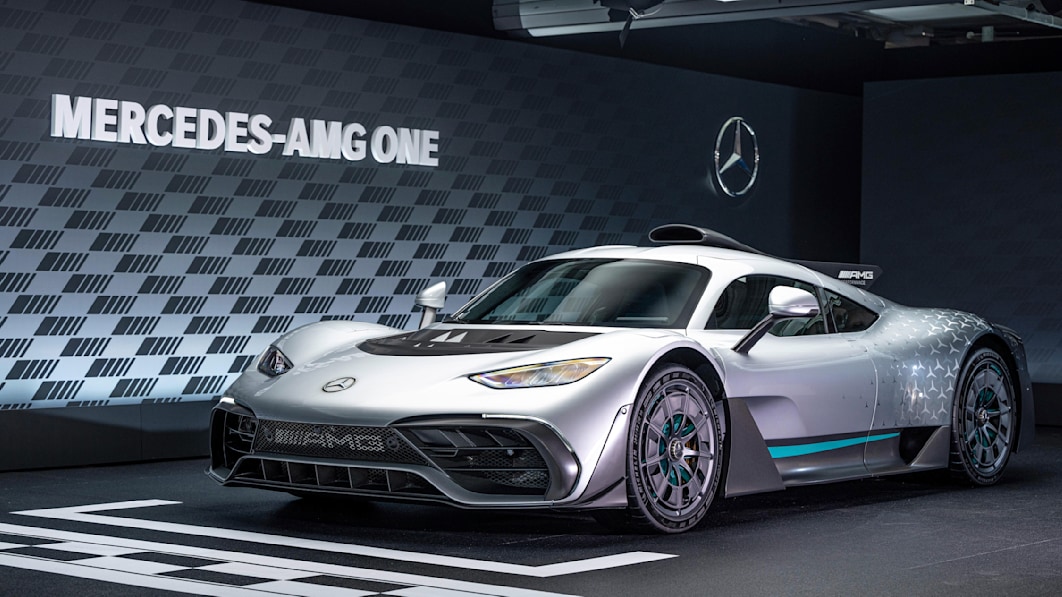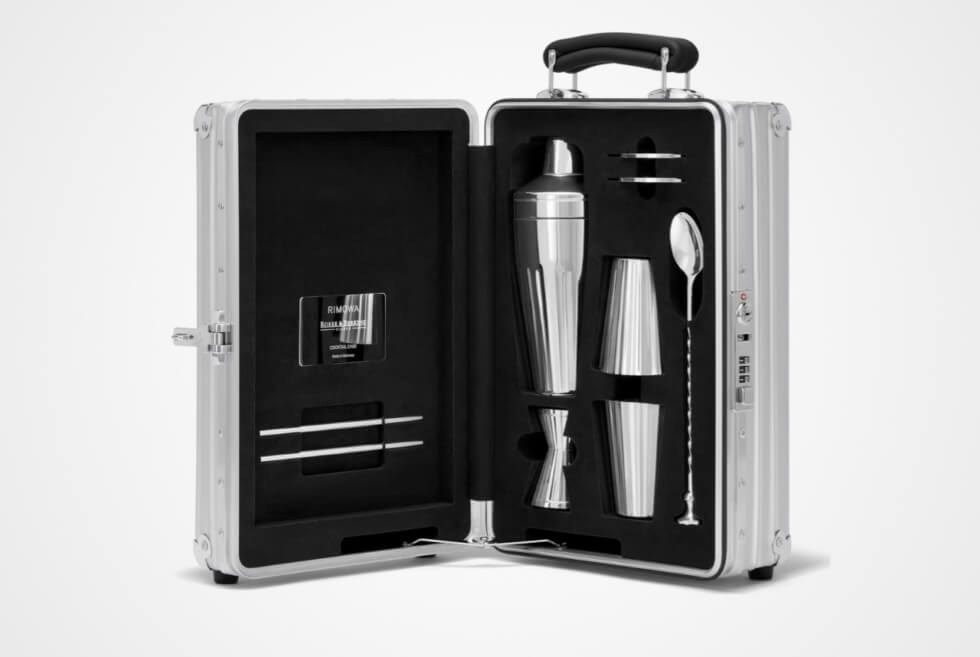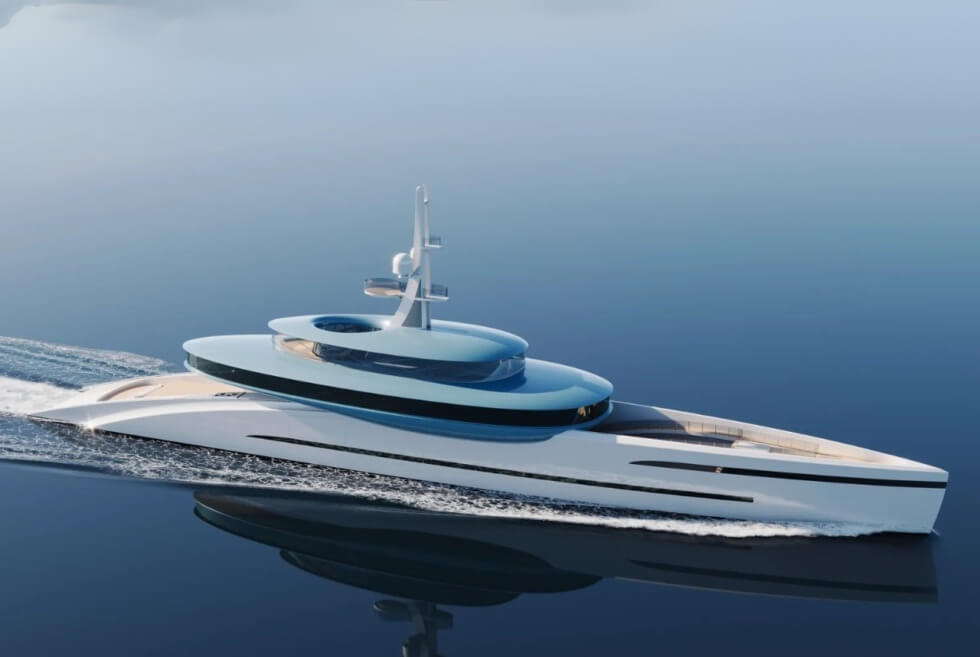Dieter Zetsche and Lewis Hamilton presided over the debut of what was then called the Mercedes-AMG Project One at the 2017 Frankfurt Motor Show. Back then, “the hottest and coolest car” Mercedes-AMG had ever attempted was going to be released in 2019. Then the 11,000-rpm, 1.6-liter V6 engine and its dislike for low-speed urban driving met increasingly strict emissions regulations, and it took the carmaker’s engineering might five years to overcome that hurdle and others. Five years on, the delay provided AMG the chance to launch what is now the Mercedes-AMG One on the 55th anniversary of AMG’s first building, the foundation stone for which was laid on June 1, 1967.
Not since the McLaren F1 have we seen a road car work so hard to adhere to Formula 1 principles, and in fact, the AMG One (and the Aston Martin Valkyrie) go further. Much has changed since the show car — Zetsche and Moers are no longer Mercedes execs, for instance — but not the vital hardpoints. The root is the E Performance powertrain, which is that 1.6-liter V6 boosted by two turbochargers. The 121-hp MGU-H turbo works off exhaust gasses but gets help spinning up to speed with an electric motor. The 161-hp MGU-K turbo is connected to the crankshaft via a spur gear. There’s 1,049 system horsepower. AMG declined to peg a torque figure, saying, “Specification not possible due to complex drive train.” AMG also declined to list an actual rev limit; the engine’s been designed to spin to 11,000 rpm, but the engineers decided “for longer durability and use of commercial super plus petrol, [the engine] deliberately stays below the F1 rev limit.” Engine output is marked as 566 horsepower at 9,000 rpm, so owners won’t be walled off far away from the physical limits.
Output runs through a new seven-speed manual transmission with shift rods and four carbon clutches instead of the eight-speed manual in the Frankfurt show car. The fully locking differential is integrated into the gearbox.
Two more motors each contribute 161 hp to drive the front wheels, providing fully-variable all-wheel drive and torque vectoring. They also provide the car a pure-electric range of 11.2 miles thanks to an 8.4-kWh liquid-cooled lithium battery that mimics the unit from the Mercedes-AMG Petronas Formula 1 car, but with more cells. This being a PHEV, the charge port is on the rear left of the car, opposite the fuel filler cap for the 14.5-gallon tank.
Getting access to the ICE power means pressing the red start button between the front seats. That activates the electric motors immediately. The driver must then wait for the exhaust aftertreatment subsystem to reach operating temperature. The subsystem consists of four metal catalytic converters, two ceramic catalytic converters, and two gasoline particulate filters, and it was the circuit that pushed engineers to their limits.
Once the engine’s given the okay to commence combustion, and given enough road, the 3,737-pound AMG One gets to 62 miles per hour in 2.9 seconds, 124 mph in seven seconds, 186 mph in 15.6 seconds. Maximum velocity is 219 mph.
There are six driving modes. Race Safe is the default on startup, using the electric motors and on-demand hybrid power once the ICE kicks in. EV mode does just what one would expect. Individual combines the driver’s personal preferences. Race keeps the 1.6-liter running constantly so as to keep the battery charged. Race Plus, only available on the track, lowers the AMG One a little more than an inch and tightens the adaptive suspension. A second track-only mode called Strat 2 is equivalent to qualifying setup, optimizing the active aero and firming up the suspension further. That active aero allows a further three settings depending on mode, either Highway, Track, or Race DRS. ABS and a three-mode ESP come standard, for drivers who favor prudence when finding the limit.
As standard, the package sits on 10-spoke, 19-inch forged aluminum center-lock wheels in front, 20-inchers in back. They can be swapped for nine-spoke forged magnesium center-lock wheels. Both sets are hidden behind carbon covers, and themselves hide a carbon-ceramic braking system with six-piston fixed calipers in front, four-piston clamps in back. Rubber stock is a quartet of specially developed Michelin Pilot Sport Cup 2Rs.
Dimensions are 15.6 feet long, 6.6 feet wide, and a hair over four feet tall. In the middle of all that is a cockpit built for two people and not much more. The seats are built into the monocoque, their backs able to recline at either 25 or 30 degrees, and an electrically adjustable steering wheel and 11-position pedal box are used to find a comfortable position. Mod-cons like air conditioning, power windows, and mini-USB ports are the most occupants will get for luxury. Luggage capacity is limited to the “high quality stowage compartment” atop the center tunnel.
The announced production run of 275 units is sold out at $2.75 million per. The patient owners and the public get the first glimpse of the coupe driven hard at this month’s Goodwood Festival of Speed. AMG’s latest will be winding its way through the horde of BMW M cars celebrating M’s 50th anniversary. Customer deliveries are expected to begin sometime after that, before the year is out.
Related video:



